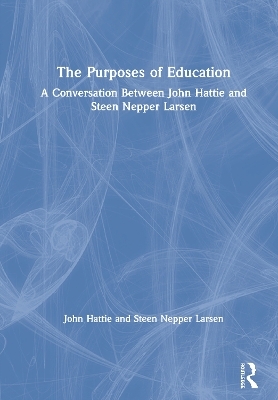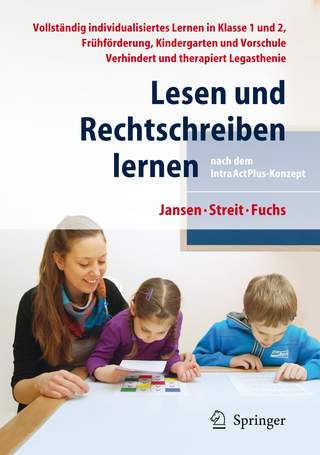
The Purposes of Education
Routledge (Verlag)
978-0-367-41663-8 (ISBN)
What are the purposes of education and what is the relationship between educational research and policy? Using the twin lenses of Visible Learning and educational philosophy, these are among the many fascinating topics discussed in extended conversations between John Hattie and Steen Nepper Larsen. This wide-ranging and informative book offers fundamental propositions about the nature of education. It maps out in fascinating detail a coming together of Hattie’s empirical data and world-famous Visible Learning paradigm with the rich heritage of educational philosophy. Additionally, it explores the inevitable questions of the purpose of education and the development of students in a learning society.
Part clash of cultures, part meeting of minds, always fascinating and illuminating, this intriguing book will inspire teachers, students, and parents at all levels of the educational system – from kindergarten through school to university.
Conversations include:
What are the purposes of education?
Does educational data speak for itself?
What is the role of the teacher?
Is learning a visible phenomenon?
Is it important to teach and learn specific subjects?
What is the role of neuroscience research?
What is the relationship between educational research and educational politics?
What is the role of the state in education?
John Hattie is Laureate Professor at the University of Melbourne, Australia, and his Visible Learning series of books have been translated into 23 different languages and have sold over 1 million copies. Steen Nepper Larsen is Associate Professor in Education Science at the Danish School of Education, Aarhus, Denmark, and has published numerous academic books and journal articles. He is a critic connected to the Danish newspaper Information, among other organizations, and has worked on several popular philosophy programs for Danmarks Radio, P1.
Introduction
I The encounter
II Does educational data speak for itself?
III Is learning a visible phenomenon?
IV Is it important to teach and learn specific subjects?
V How not to objectify the students and pupils you are studying
VI What is the role of the teacher?
VII What is the relationship between educational research and educational politics?
VIII Is it possible to revitalize the German concept Bildung (i.e., the formation of character and the higher ideas and ideals of education)?
IX How to differentiate between the how, what, and why of education
X Is there a purpose of education?
XI Is it possible to understand pedagogy as an art of decentering?
XII How to deal with neuroscience
XIII How to deal with critique
XIV If schools didn’t exist – would we miss them?
XV Why are we longing for predictability and security?
XVI The conversation stops but must continue
References
List of abbreviations
Glossary
Index
| Erscheinungsdatum | 28.05.2020 |
|---|---|
| Zusatzinfo | 16 Halftones, black and white; 16 Illustrations, black and white |
| Verlagsort | London |
| Sprache | englisch |
| Maße | 174 x 246 mm |
| Gewicht | 840 g |
| Themenwelt | Geisteswissenschaften ► Psychologie ► Pädagogische Psychologie |
| Sozialwissenschaften ► Pädagogik ► Allgemeines / Lexika | |
| Sozialwissenschaften ► Pädagogik ► Bildungstheorie | |
| ISBN-10 | 0-367-41663-8 / 0367416638 |
| ISBN-13 | 978-0-367-41663-8 / 9780367416638 |
| Zustand | Neuware |
| Informationen gemäß Produktsicherheitsverordnung (GPSR) | |
| Haben Sie eine Frage zum Produkt? |
aus dem Bereich


